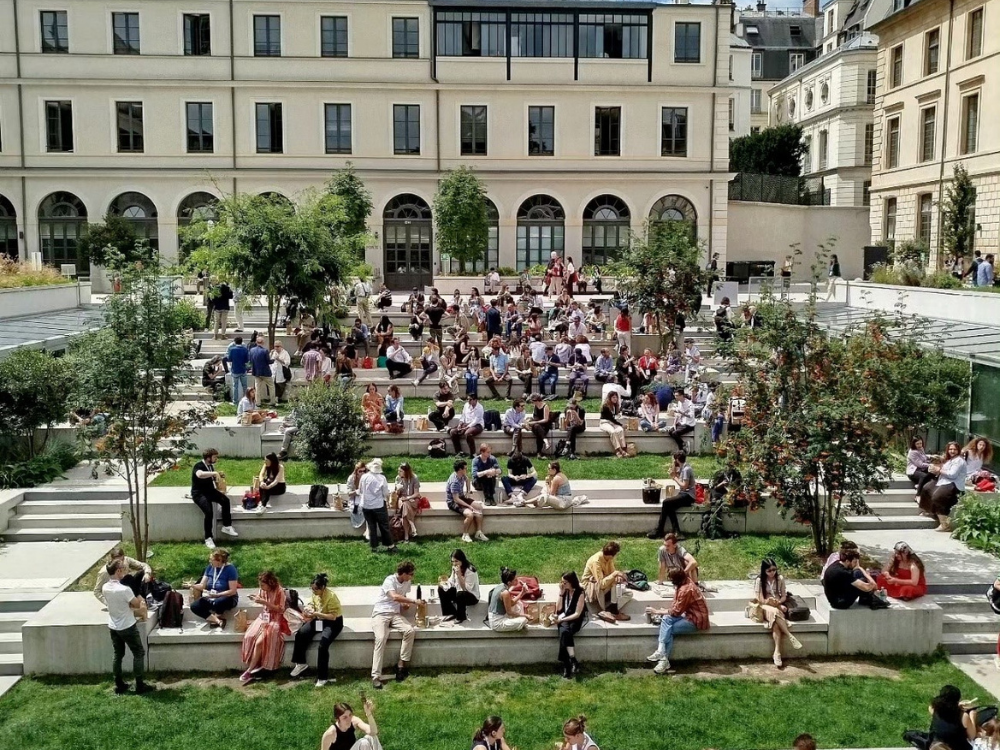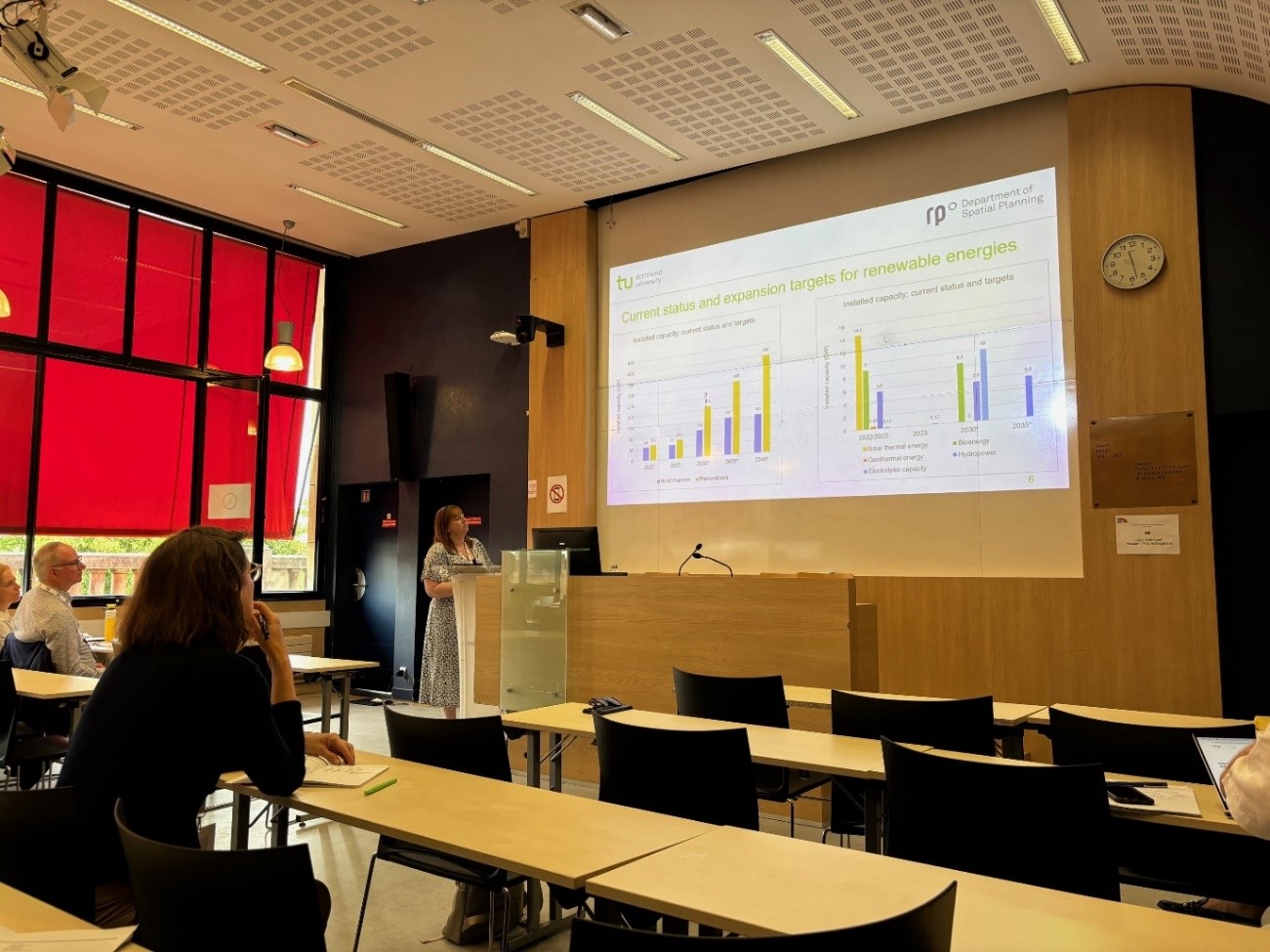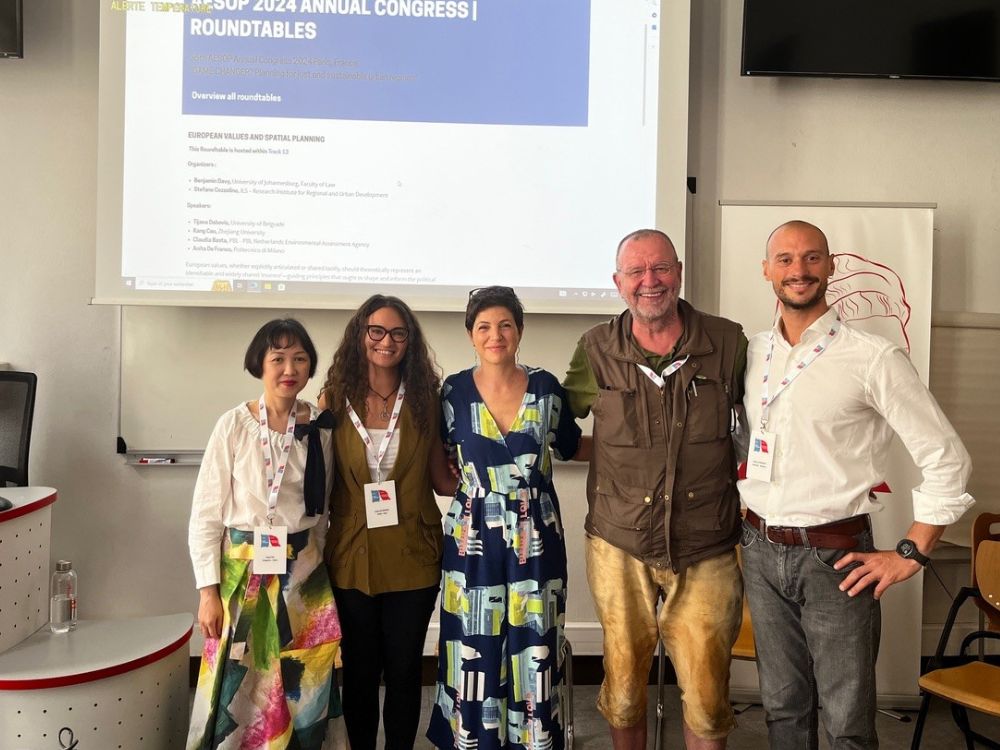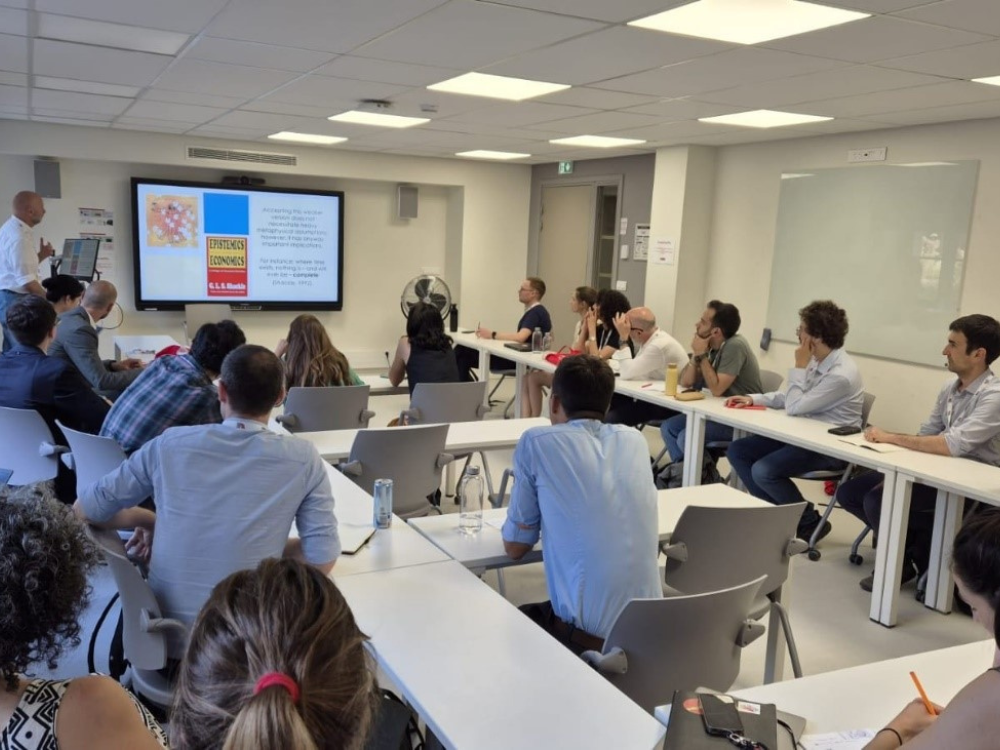Veröffentlicht am: 31. Juli 2024
ILS researchers presented at the AESOP Annual Congress 2024
ILS researchers presented eight papers at the AESOP annual congress 2024 and organised and chaired one entire track, one roundtable and one special session. The 36th annual AESOP Congress was held at the Center for European Studies and Comparative Politics and the Urban School of Sciences Po in Paris from the 8th to the 12th of July 2024. Nearly 1200 urban studies experts worldwide participated in the conference, and 220 sessions were organised in 18 thematic tracks. As an active member of the ASEOP (Association of European Schools Planning), seven researchers from all ILS research groups presented papers at the conference. Topics of the papers ranged from citizen participation and governance, commercial gentrification, energy planning, complexity theories in masterplanning, urban regeneration of peripheral neighbourhoods, sustainable transport, and mobility transition and walkability.
As coordinator of the AESOP Thematic Group on Ethics, Values, and Planning, Dr. Stefano Cozzolino was responsible for, organized, and co-chaired track 9, “INCLUSION—Planning for Fair, Plural, and Welcoming Cities”, which hosted 14 sessions and approximately 80 presentations.
Dr Stefano Cozzolino also organized and chaired a Roundtable on “European values and spatial planning” in collaboration with the thematic group on ”Theories” and an evening event on “Time/Less. Sensing, Designing, Planning” with the thematic group on ”Planning and Complexity”.
Abstracts of the papers are available here:
List of the papers:
- Stefano Cozzolino: ’Revisiting The Urban Periphery Issue In Planning Education. An Alternative Beyond ‘Naïve Approaches’ and ‘Victim Mentality Mindsets’ (Track 9: Inclusion)
- Stefano Cozzolino: ’Masterplanning And Complexity Theories Of Cities: Discussing The Difference Between Complexity Of Design And Design For Complexity’ (Track 13: Theories)
- Lea Fischer (Rwth Aachen University): ‘Administrative Perspectives On The Role Of Citizens In Planning Processes’ (Trak 6: Governance)
- Sarah Friese (TU Dortmund): ‚Implementing Germany-Wide Targets For A Sustainable Energy Transition At State And Regional Level: An Overview’ (Track 7: Environment and Climate)
- Christian Gerten: ‘Urban Transport Layers – A Data-Driven Exploration Of European City’ (Track 5: Mobility)
- Bastian Heider (TU Dortmund) and Stefan Siedentop: ‘Measuring Industrial Displacement – Quantitative Evidence From Urban Regions In North-Rhine-Westphalia, Germany’ (Track 9 Inclusion)
- Felix Leo Matzke: ‘Agonistic Planning In Practice: Is It Successful?’ (Trak 6: Governance)
- Noriko Otsuka, Anna-Lena van der Vlugt, Janina Welsch, Katrin Lättman, Jonas De Vos, and Edward Prichard: Promoting Walking And Changing The Priority Setting In Urban Mobility (Trak 5 mobility)
Aktualisiert am: 21. Oktober 2024









